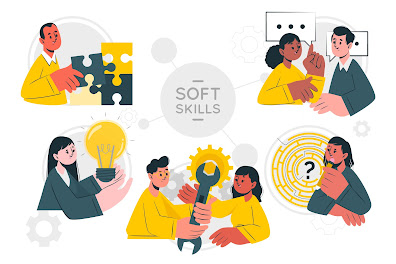10 Skills: The Impact of a Level 3 Certificate on Vocational Achievement
In today's rapidly evolving job market, obtaining relevant qualifications is essential for career advancement. One such credential that stands out is the Level 3 Certificate in Vocational Achievement. This certificate offers a robust foundation for individuals looking to enhance their skills and secure better job opportunities. This article explores the impact of a Level 3 Certificate on vocational achievement by examining ten key skills it helps to develop.
1. Technical Proficiency
The Level 3 CAVA equips learners with technical skills pertinent to their chosen field. These skills are critical in executing specific tasks and improving overall job performance. For instance, a Level 3 Certificate in IT focuses on software development, networking, and cybersecurity, providing a comprehensive understanding of technology.
**Related Question:** How does technical proficiency gained through a Level 3 Certificate compare to hands-on experience in the field?
2. Problem-Solving Abilities
Problem-solving is a valuable skill across all professions. The coursework and practical assessments involved in earning a Level 3 Certificate encourage learners to tackle real-world problems. This practice hones their ability to think critically and develop effective solutions.
**Related Question:** What are some examples of problem-solving tasks included in the Level 3 Certificate curriculum?
3. Communication Skills
Effective communication is vital in any job role. The Level 3 Certificate emphasizes both written and verbal communication, ensuring that learners can convey ideas clearly and collaborate with colleagues. This skill is particularly beneficial in customer-facing roles or positions that require teamwork.
**Related Question:** How can improved communication skills impact one's career progression?
4. Time Management
Balancing coursework with practical assignments teaches learners the importance of time management. Completing a Level 3 Certificate requires students to prioritize tasks, meet deadlines, and manage their schedules efficiently. These skills are directly transferable to the workplace, where time management is crucial for productivity.
**Related Question:** Can the time management skills learned during a Level 3 Certificate program be applied to personal life as well?
5. Adaptability
The job market is constantly changing, and adaptability is a crucial skill for career longevity. The Level 3 Certificate exposes learners to various scenarios and challenges, preparing them to adapt to new technologies, methodologies, and work environments.
**Related Question:** How does the Level 3 Certificate prepare students for the evolving demands of their industry?
6. Teamwork
Many vocational courses within the Level 3 framework involve group projects and collaborative work. This experience is invaluable in fostering teamwork and understanding the dynamics of working within a group. Being able to work effectively with others is a key component of many professions.
**Related Question:** What types of group projects are typically included in a Level 3 Certificate program?
7. Leadership
While teamwork is essential, leadership skills are equally important. The Level 3 Certificate often includes modules on leadership and management, teaching students how to take initiative, guide teams, and make strategic decisions. These skills are crucial for those aspiring to supervisory or managerial roles.
**Related Question:** How can leadership skills gained from a Level 3 Certificate enhance career prospects?
8. Industry-Specific Knowledge
Each Level 3 Certificate is tailored to a specific industry, providing in-depth knowledge and skills relevant to that sector. Whether it's healthcare, engineering, or business, the curriculum is designed to meet the standards and requirements of the industry, ensuring that graduates are well-prepared for their careers.
**Related Question:** How does the Level 3 Certificate ensure that its curriculum stays relevant to industry standards?
9. Confidence
Achieving a Level 3 Certificate can significantly boost an individual's confidence. The knowledge and skills gained, coupled with the recognition of completing a rigorous program, empower learners to take on new challenges and pursue career advancements with self-assurance.
**Related Question:** What impact does increased confidence have on job performance and career growth?
10. Networking Opportunities
During their studies, learners often have the chance to interact with industry professionals, instructors, and peers. These interactions can lead to valuable networking opportunities, providing insights into the industry and potential job prospects. Building a professional network is essential for career development.
**Related Question:** How can students leverage networking opportunities provided by a Level 3 Certificate program?
Conclusion
The Level 3 Certificate in Vocational Achievement is a powerful tool for career advancement. By developing technical proficiency, problem-solving abilities, communication skills, time management, adaptability, teamwork, leadership, industry-specific knowledge, confidence, and networking opportunities, this qualification significantly enhances vocational achievement. For individuals looking to elevate their careers, the Level 3 Certificate provides a comprehensive pathway to success.
**Additional Questions:**
1. What are the prerequisites for enrolling in a Level 3 Certificate program?
2. How long does it typically take to complete a Level 3 Certificate?
3. Are there financial aid options available for pursuing a Level 3 Certificate?
4. How does the Level 3 Certificate compare to other vocational qualifications in terms of job market value?
5. Can a Level 3 Certificate lead to further educational opportunities?
In summary, a Level 3 Certificate is not just a piece of paper; it is a transformative experience that equips learners with essential skills and knowledge. By investing in this qualification, individuals can significantly enhance their vocational prospects and achieve their career goals.

.jpg)


Comments
Post a Comment